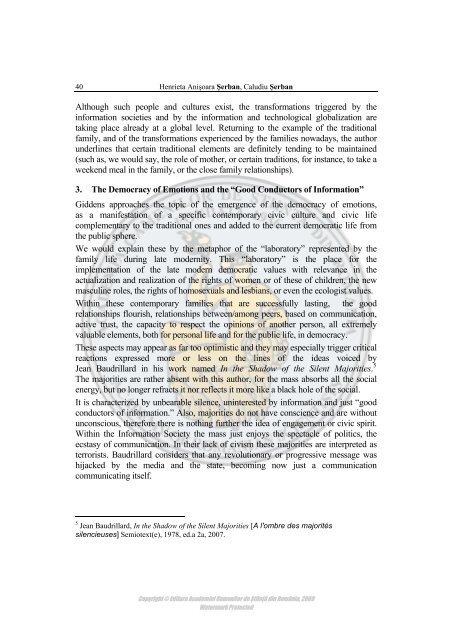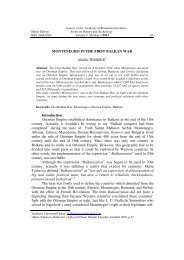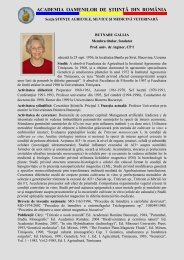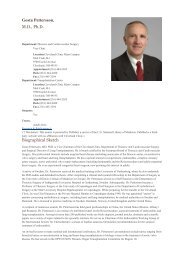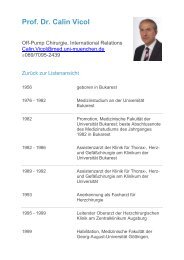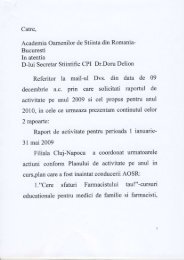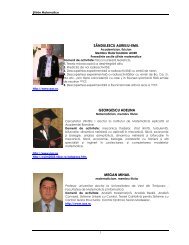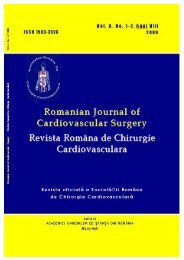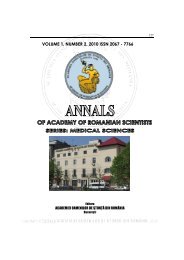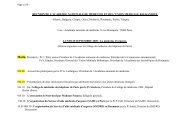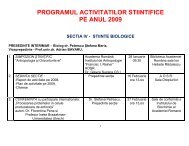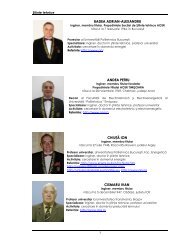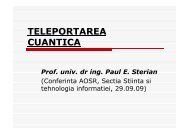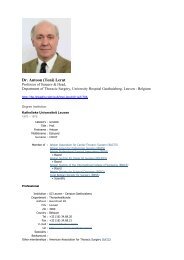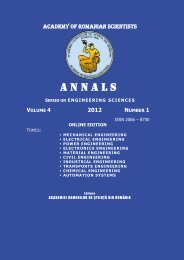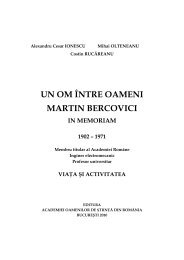PROCEEDINGS - Academia Oamenilor de Stiinta din Romania
PROCEEDINGS - Academia Oamenilor de Stiinta din Romania
PROCEEDINGS - Academia Oamenilor de Stiinta din Romania
You also want an ePaper? Increase the reach of your titles
YUMPU automatically turns print PDFs into web optimized ePapers that Google loves.
40 Henrieta Anişoara Şerban, Caludiu Şerban<br />
Although such people and cultures exist, the transformations triggered by the<br />
information societies and by the information and technological globalization are<br />
taking place already at a global level. Returning to the example of the traditional<br />
family, and of the transformations experienced by the families nowadays, the author<br />
un<strong>de</strong>rlines that certain traditional elements are <strong>de</strong>finitely ten<strong>din</strong>g to be maintained<br />
(such as, we would say, the role of mother, or certain traditions, for instance, to take a<br />
weekend meal in the family, or the close family relationships).<br />
3. The Democracy of Emotions and the “Good Conductors of Information”<br />
Gid<strong>de</strong>ns approaches the topic of the emergence of the <strong>de</strong>mocracy of emotions,<br />
as a manifestation of a specific contemporary civic culture and civic life<br />
complementary to the traditional ones and ad<strong>de</strong>d to the current <strong>de</strong>mocratic life from<br />
the public sphere.<br />
We would explain these by the metaphor of the “laboratory” represented by the<br />
family life during late mo<strong>de</strong>rnity. This “laboratory” is the place for the<br />
implementation of the late mo<strong>de</strong>rn <strong>de</strong>mocratic values with relevance in the<br />
actualization and realization of the rights of women or of these of children, the new<br />
masculine roles, the rights of homosexuals and lesbians, or even the ecologist values.<br />
Within these contemporary families that are successfully lasting, the good<br />
relationships flourish, relationships between/among peers, based on communication,<br />
active trust, the capacity to respect the opinions of another person, all extremely<br />
valuable elements, both for personal life and for the public life, in <strong>de</strong>mocracy.<br />
These aspects may appear as far too optimistic and they may especially trigger critical<br />
reactions expressed more or less on the lines of the i<strong>de</strong>as voiced by<br />
Jean Baudrillard in his work named In the Shadow of the Silent Majorities. 5<br />
The majorities are rather absent with this author, for the mass absorbs all the social<br />
energy, but no longer refracts it nor reflects it more like a black hole of the social.<br />
It is characterized by unbearable silence, uninterested by information and just “good<br />
conductors of information.” Also, majorities do not have conscience and are without<br />
unconscious, therefore there is nothing further the i<strong>de</strong>a of engagement or civic spirit.<br />
Within the Information Society the mass just enjoys the spectacle of politics, the<br />
ecstasy of communication. In their lack of civism these majorities are interpreted as<br />
terrorists. Baudrillard consi<strong>de</strong>rs that any revolutionary or progressive message was<br />
hijacked by the media and the state, becoming now just a communication<br />
communicating itself.<br />
5 Jean Baudrillard, In the Shadow of the Silent Majorities [A l'ombre <strong>de</strong>s majorités<br />
silencieuses] Semiotext(e), 1978, ed.a 2a, 2007.<br />
Copyright © Editura Aca<strong>de</strong>miei <strong>Oamenilor</strong> <strong>de</strong> Știință <strong>din</strong> România, 2009<br />
Watermark Protected


